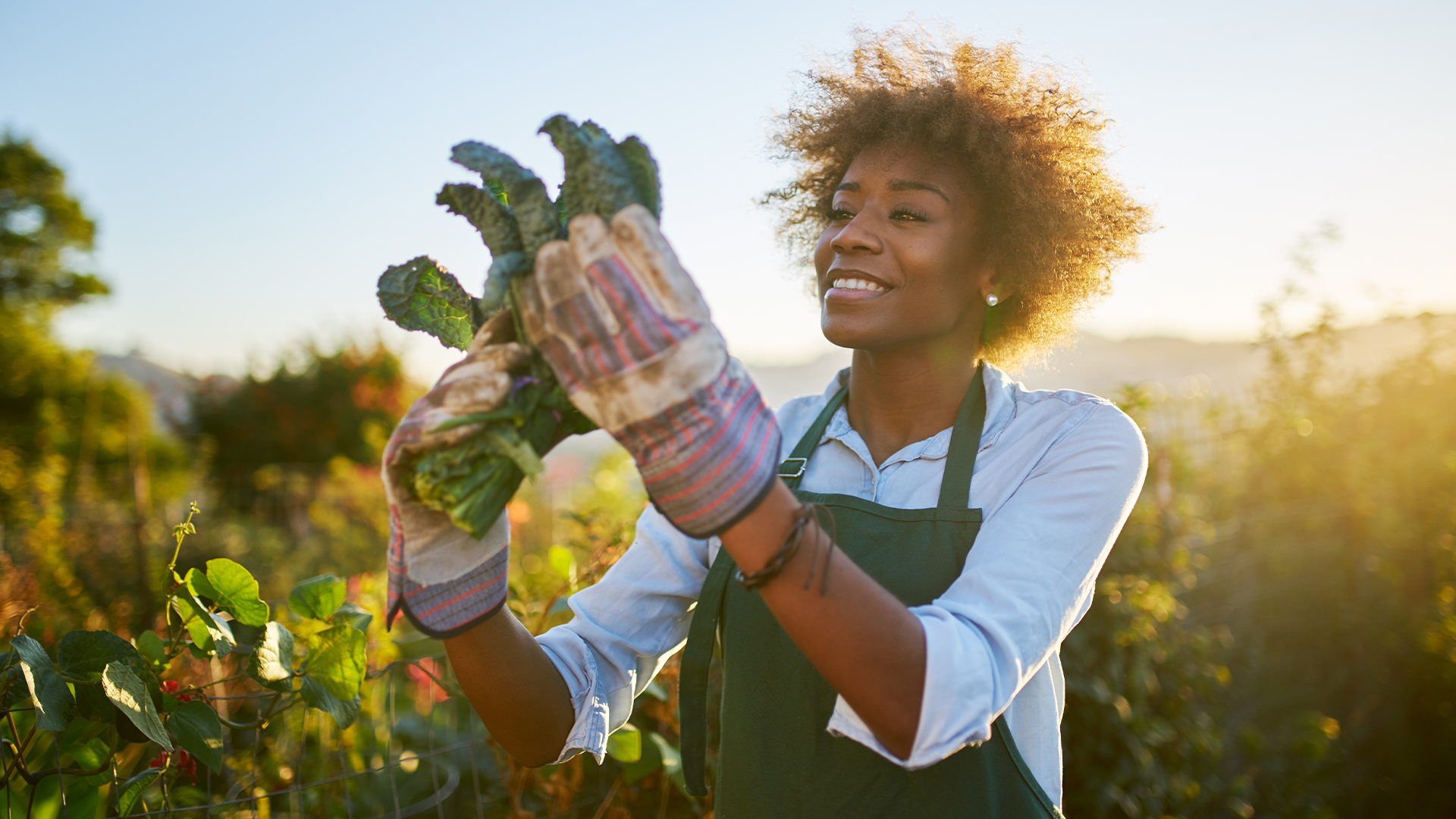Women have long played an essential role in the agriculture industry. Unfortunately, it has not always been acknowledged or captured in industry data. As Minnesota’s farmer population ages, there is an increasing need to support emerging and underserved parts of the community to strengthen the next generation. In 2020, Farmfest took a step towards recognizing female leadership in ag by selecting its first Woman Farmer of the Year: Sarah Kuschel from Sebeka, Minn.
The Farmfest Woman Farmer of the Year award honors hard-working female farmers from Minnesota who selflessly give their time to growing crops and raising livestock on the farm. Kuschel raises beef cattle and equine on a fourth-generation cattle operation while raising three children and serving as a regional curriculum specialist for Minnesota Ag in the Classroom.
“So many times, women on the farm wear multiple hats, tirelessly contributing to the farm, their communities, their children or working outside the home,” says Melissa Sanders Carrol, executive \ director for IDEAg, producers of the Minnesota Farmfest. “This award seeks to acknowledge their commitment to production agriculture and show our appreciation.”
According to the 2017 Census of Agriculture from the United States Department of Agriculture, out of 68,822 Minnesota producers about 15 percent identified as female. Meanwhile, an overwhelming majority of Minnesota producers identify as white.
Along with Farmfest’s new Woman Farmer of the Year award, other food and ag organizations are working to support female leadership in agriculture. The Minnesota Department of Agriculture (MDA) has sponsored an annual Women’s Agricultural Leadership Conference for over two decades run by District 11 of the Minnesota Agri-Women. The 2019 conference focused on the changing “agscape.” The 2020 conference, themed “Dare to Lead into a New Decade” was postponed due to the COVID-19 pandemic.
MDA also works to support new and emerging farmers from underserved communities, including women, by conducting research and convening an Emerging Farmers’ Working Group. According to the “Barriers to Emerging Farmers in Minnesota” legislative report, data collection efforts often miss how women participate in farm businesses. Limits by the United States Department of Agriculture to count only one principal operator of a farm business during previous censuses of agriculture, meant women were not counted as principal producers even if they were in a partnership and participating fully in decision making. This was altered for the 2017 Census of Agriculture.
“Women bring a different perspective to the farm and agricultural businesses that is important,” says Jennifer Wagner-Lahr, AURI’s senior director of commercialization. “And their voice often resonates with primary shoppers – who are often women and moms – we care about many of the same things.”
Besides her role at AURI, Wagner-Lahr is actively involved in her family’s farm operation that includes raising replacement heifers, growing cash crops as well as forage crops. She is among several women on staff at AURI that are involved in farming – from working with livestock and the land to raising the next generation of ag enthusiasts with the support of programs like 4-H and FFA. The report further notes that women in agriculture currently seek more leadership opportunities and educational resources.
The Women in Ag Network under the University of Minnesota Extension and Minnesota’s Farm Service Agency also provides educational opportunities and events that enhance leadership, management and production skills for women working in agriculture. They host an annual conference as well as maintain a Facebook page and email listserv. They also offer an interactive online series on “Cultivating Resiliency for Women in Agriculture” focused on raising awareness of farm stress and teaching techniques to cope.
“Having participated in several of the women-focused events,” says WagnerLahr, “I am grateful for the programming that has been available to women in the industry as a means to network, troubleshoot issues on the farm and in the industry, and to decompress and enjoy each other’s company.”
More women are actively seeking leadership roles in agriculture. The farm women of CommonGround volunteer their time to share information about how food is grown and raised in Minnesota. While others across the industry participate in opportunities like the Minnesota Agriculture & Rural Leadership (MARL) program and Annie’s Project.
Leadership opportunities and educational programs targeted at women in agriculture are growing. This expansion of support for the industry’s women is vital for building resiliency and diversity in Minnesota’s food and ag sector.
MN Resources for Women in Ag
- Women in Ag Network, University of Minnesota Extension: extension.umn.edu/business/women-ag-network
- Women in Agriculture, Renewing the Countryside: renewingthecountryside.org/women_in_ag
- Minnesota Women, Food & Ag Network, Women’s Environmental Institute: w-e-i.org/research-communities/minnesota-women-food-ag-network/
